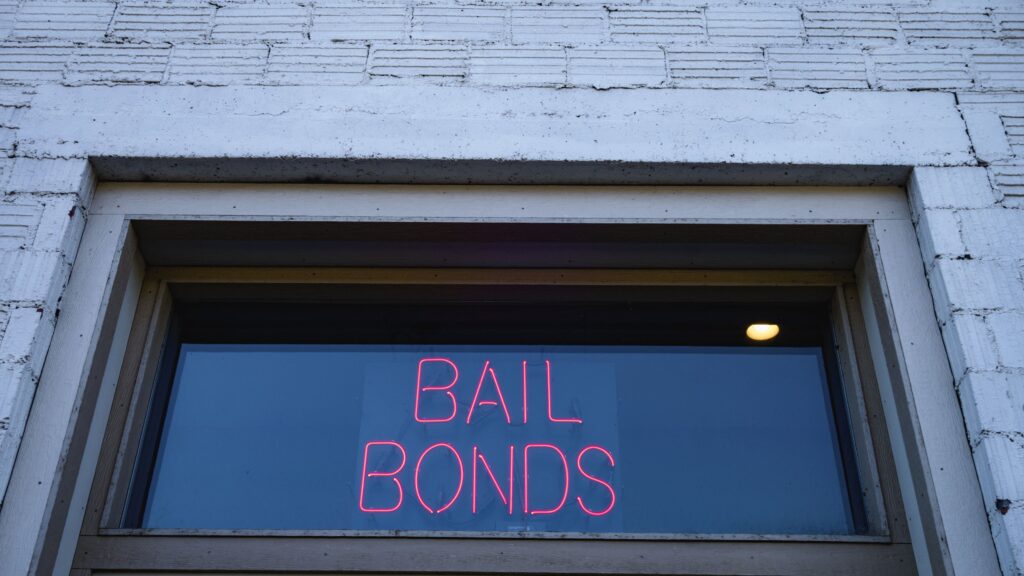What Is A Bail Bond?

Bail bonds are a legal way to get a defendant out of jail between court appearances. They are secured by a co-signer and cost a fraction of the total bail amount. In addition, they are a contract between the person posting bail and the court system.
Bail bonds are a Type of Agreement.
Bail bonds are a type of agreement between a defendant and a bail agency that allows a defendant to get out of jail in the interim between court appearances. This form of bail is used by defendants who cannot afford to pay the full amount of bail. Instead, they pay the bail agent a premium, usually around 10{94b1d6cfe08c6e4f5a07ef8379e8f47d569b815d4b378830bb7d00195f7527e7} of the full amount, to guarantee that the defendant will appear in court. Bail agents may also require collateral to release the defendant.
Bail bonds Harrisburg PA are an excellent option for defendants who cannot afford the full amount of bail, and they allow defendants to avoid jail during the time between court appearances. If a defendant cannot afford the full bail amount, a family member or friend may be willing to put up the money. This option may be appropriate in cases where the bail amount is much higher than the defendant’s assets.
A Co-signer Secures Them.
A co-signer is a person who guarantees that the person accused of a crime will show up for a court hearing. They may also provide payment for the bond. A co-signer is also known as a guarantor or indemnitor. The co-signer may revoke the bond if the defendant fails to appear for a court hearing.
To co-sign a bail bond, the co-signer must have valuable property or a combination of valuable items. This property or combination of items serves as collateral, which covers the bail amount. In addition, the co-signer must attend the court hearing and make sure the defendant appears.
They Cost a Fraction of the Bail Amount.
The fees associated with bail bonds are relatively low – around 10{94b1d6cfe08c6e4f5a07ef8379e8f47d569b815d4b378830bb7d00195f7527e7} of the total bail amount. These are one-time, nonrefundable costs. The fee is a small price to protect the defendant’s liberty. It allows them to continue working and fulfilling their responsibilities while on bail.
Bail bonds are a great option for defendants who cannot afford the full bail amount. A bail agent will work with a defendant’s friends and family to explain the bail process and amount. Often, they can secure a co-signer who will guarantee to make all appearances and pay the premium on the defendant’s behalf. Co-signers also guarantee that the defendant will return to court on time.
They are a Contract Between the Defendant and The Court System
A bail bond is a money deposit made to the court in exchange for the release of a defendant on bail. The court system holds the bail deposit as collateral, and once the defendant is released, the court will return it. Depending on the crime and risk of flight, a person can be released on bail for a small sum or even thousands of dollars.
Bail bonds are often large, and many people don’t have the money to post the bail themselves. Therefore, most states require the use of a bail bond company, which charges a nonrefundable fee, usually ten to twenty percent of the total bail amount. This fee may be paid in full upfront or through a payment plan.
They are Cheaper.
If you have access to the cash, you’ll need to pay full bail; you can pay it at the courthouse. This will start the release process, and the court will return the entire amount if the defendant shows up for court. However, you are taking a risk by paying full bail and taking on that risk.
Bail amounts are often out of the financial reach of many people. However, bail bonds allow for payment plans that can make it affordable. In many states, a bail bonds company will charge a nonrefundable fee, usually about 10 percent or more of the total bail amount.